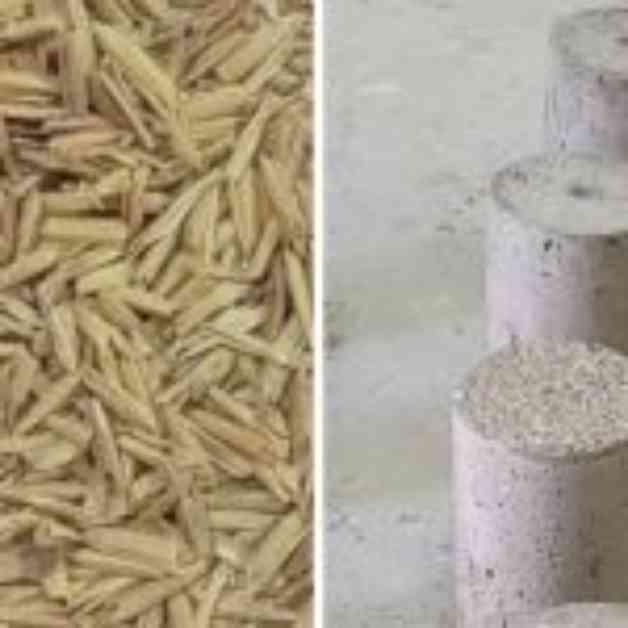Rice husk ash is being explored as a sustainable alternative to traditional cement in the construction industry. A group of researchers from ten universities has found that rice husk ash, which is rich in silica, can be used as a partial substitute for cement in concrete. This eco-friendly solution aims to reduce the negative environmental impacts associated with concrete production.
The researchers used artificial intelligence (AI) techniques to develop predictive models for the compressive strength of rice husk ash concrete. This approach is faster and more cost-effective compared to traditional methods. The study’s goal is to find a substance with a lower carbon footprint than cement, which is a major contributor to carbon dioxide emissions.
The construction industry is the second-largest consumer of plastic globally and contributes significantly to greenhouse gas emissions. Concrete production, in particular, is under scrutiny due to its environmental impact. Cement production alone is responsible for a large portion of CO2 emissions worldwide. By replacing cement with rice husk ash in concrete mixtures, researchers hope to create a more sustainable and environmentally friendly alternative.
In addition to reducing carbon emissions, the study found that incorporating rice husk ash in concrete mixtures enhances various properties of the material. These include improved compressive strength, abrasion resistance, moisture barrier properties, and reduced drying shrinkage. These findings suggest that using rice husk ash in concrete production can lead to more durable and economical construction practices.
The research team at the American University of Ras Al Khaimah (AURAK) conducted laboratory tests to evaluate the effects of using rice husk ash as a partial cement replacement. Concrete mixtures with different percentages of rice husk ash were tested for strength and durability at various ages. The results showed promising outcomes, indicating that rice husk ash can be a viable alternative in producing sustainable concrete mixtures.
This innovative approach to concrete production aligns with global efforts to promote sustainable construction practices. By harnessing the power of artificial intelligence and eco-friendly materials like rice husk ash, researchers are paving the way for a greener future in the construction industry. The findings of this study offer valuable insights for academics and builders looking to adopt more sustainable practices in their projects.












